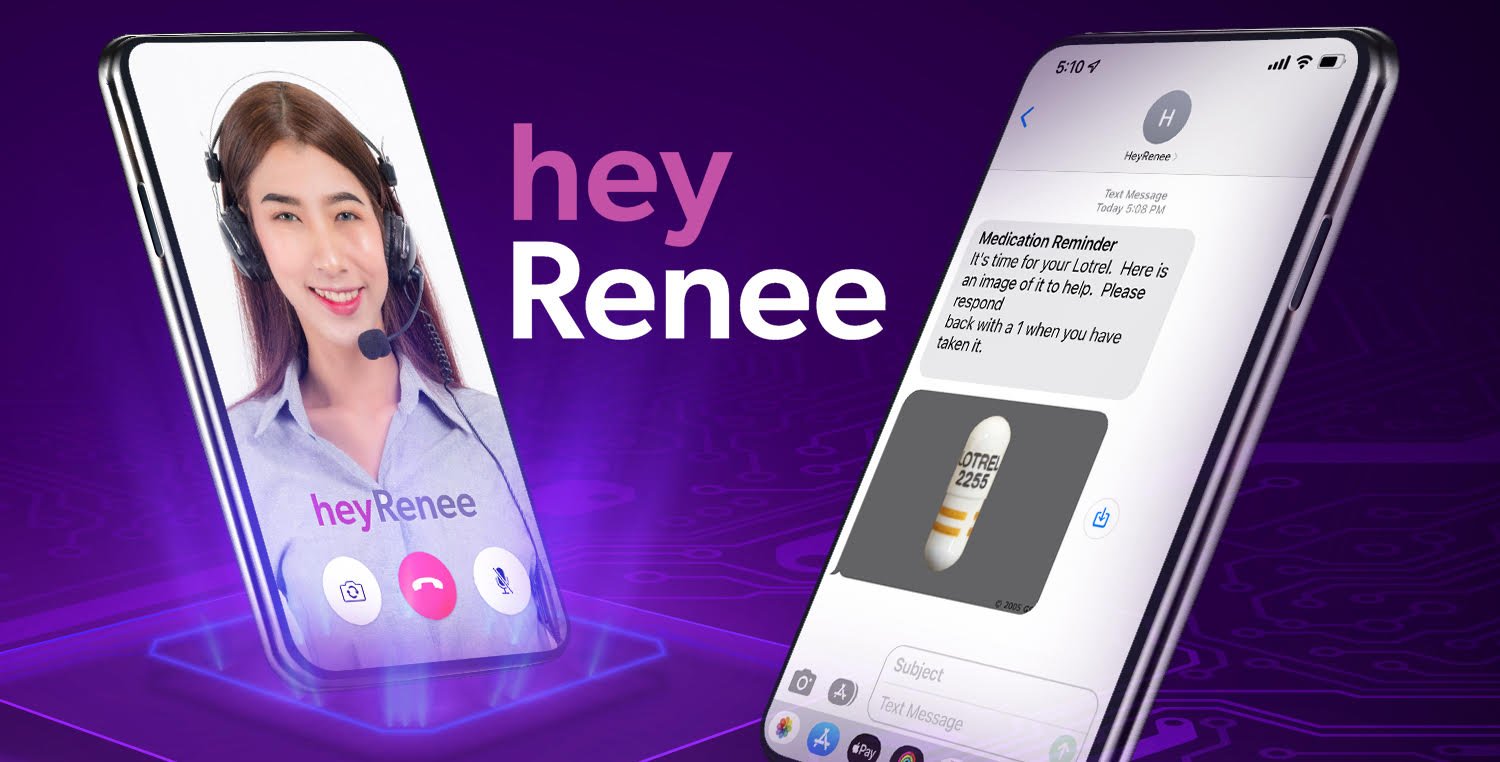
Lower income, underserved, and polychronic patients are the people most in need of care, and yet they’re also the ones that have the hardest time accessing it: the number of people on Medicaid is increasing, while the wealthiest Americans outlive the poorest by up to 15 years.
HeyRenee was built to help these populations get the care they need by acting as their personal healthcare concierge.
The company, founded by Nick Desai and Dr. Renee Dua, the married couple who previously co-founded at-home health service Heal, works by taking everything a doctor says to a patient and matrixing it against their insurance coverage, thereby giving them a daily plan that will be available via text, voice interface, text message, and by a touch interface that can be used by the patient or their caretaker.
HeyRenee is planning to launch in the Spring of this year, and now it has some additional capital help make that happen: on Thursday, it announced an oversubscribed $4.4 million Seed II funding round led by Quiet Capital, with participation from City Light Capital, Fika Ventures, Global Founders Capital, Mucker Capital, SaaS Ventures, and Tau Ventures. The company previously raised $3.8 million in August, bringing its total capital to $8.2 million at a $30 million valuation.
Here’s how HeyRenee works: if a patient has 12 daily medications they need to take, for example, they don’t have to sit around and wonder which ones to take and how to take them. Instead, HeyRenee will send them a text with a picture of the pill that says, “Take this pill at this time with milk.” The patient then just has to say, “Hey, Alexa, tell HeyRenee I took my blood pressure medication,” and that information will be recorded and sent to their doctor.
The patients vitals will also be monitored, so if their blood pressure spikes, HeyRenee will let their doctor know that either they’re not taking their medications, or this particular medication isn’t working for them.
HeyRenee plans to offer its software on commercially available Android devices and tablets, which will be provided by the patient’s insurance company. In addition, the company will be providing an on-ramp, connecting patients, especially seniors, to a human who can help them learn now to use the service.
Since its last funding round, HeyRenee has focused on three things, Desai told me, the first of which was building out its team, which is now up to 12 people, including hiring Alexandra Cohen as its new Head of Product.
The second big area over the last six months was running pilot; HeyRenee has been running an alpha pilot on around 100 patients for almost two full months and the data “has been phenomenal,” he said.
The typical patient on HeyRenee is in the 70s, has three chronic diseases, and takes medications daily. After using the app, the perception that patients had of their health care quality went from a Net Promoter Score of 28 to 43 in just 30 days, while their CMS stars rating for health care coordination and quality went from three stars to five stars, on average. On top of that, their adherence to medications and taking their vitals is 94%.
The third thing that HeyRenee has focused on is the growth and business development side of the business; the company was named a health-tech finalist in the Mass Challenge, and was chosen to be part of the inaugural cohort for PandemicX, the new health equity focused initiative of the United States Department of Health and Human Services.
“We really wanted to have a great partner to launch with, so we applied to the Mass Challenge and through 3,100 companies we were selected as one of the 15 finalists to work with HHS under a charter program they have called PandemicX, which includes companies that will significantly improve health equity coming out of the pandemic,” Desai told me.
“Obviously, our founding mission is health equity, so we’re thrilled to be part of that program.”
Going forward, HeyRenee will continue to focus on building out its team but, even more important than that, it will put a greaer focus on accelerating its market entry.
“If 2020 was about telehealth, and 2021 was about digital health point solutions and digital first care delivery, 2022 and beyond is going to be about coordinated, whole person, integrated care. And that is what is missing,” said Desai.
“The average 70 year old is not a diabetic; they have diabetes, hypertension, heart disease, and mental health issues, and they also bake for their church picnic and want to date. Unless you accommodate all of those life, cultural, personal and clinical factors, you’re not really taking care of the person as a whole.”
There’s an expectation that a senior is going to sign up a telehealth app, a diabetes tracking app, a remote monitoring services, a heart health app, and a mental health service, he said, but the average person, let alone someone who might struggle with technology is going to do all of that.
That’s why the founders are taking lessons that they learned from their time Heal, which combined in-person visits, telehealth, as well as remote patient monitoring. The difference with HeyRenee, Desai explained, is that while all of those pieces fit together manually at Heal, now the focus is on making them scalable, cost effective, and digital in way that is specifically designed for seniors.
“Bringing it together is what this year is about and so the funding really comes into accelerating the way we get into the market,” Desia said.
“The digital part of it is really important. 53 million American adults are already take care of aging loved ones. There’s a shortage of 1.2 million over the next decade, 1.2 million home health care aides in America. There are more job openings for home health aides over the next 10 years than for any other profession in America, including software engineers, doctors, anything else. Americans are living longer, which means more chronic disease, more mental health issues, altered mental status, and we still have the pandemic raging. So, a cost effective, scalable digital solution is the only way we solve this problem.”




















